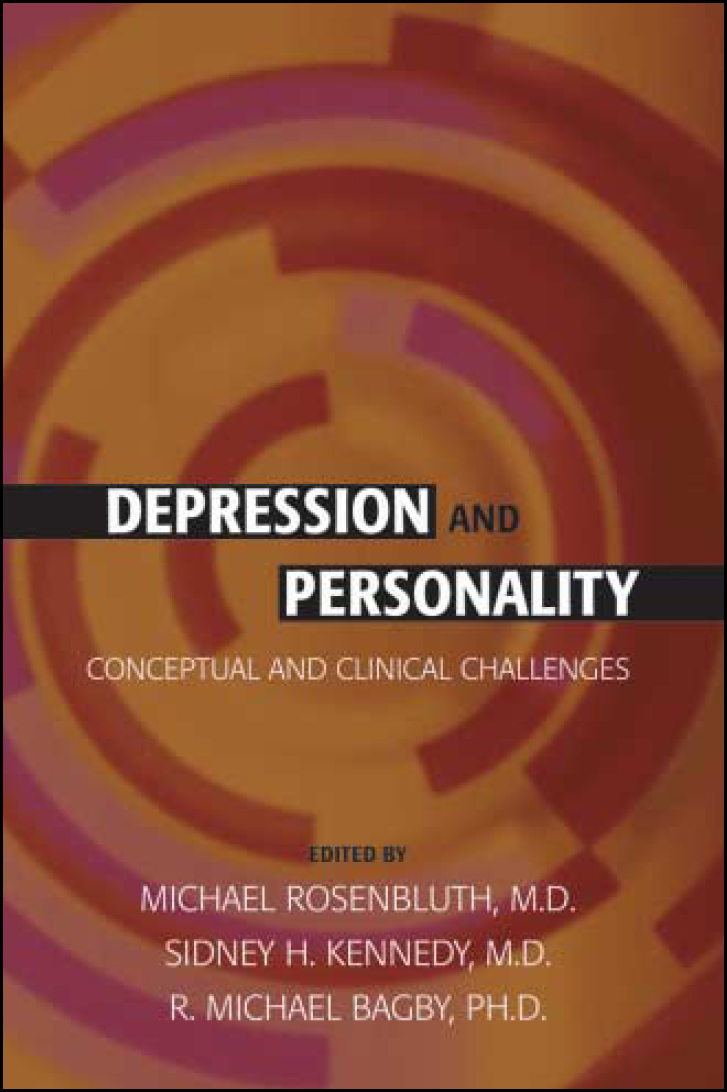
Although it is tempting to think that the problem of chronic depression could be solved by government initiatives, for example through increased provision of cognitive–behavioural therapy services, this helpful and highly readable collection of ideas and treatment strategies from well-respected psychiatrists and psychologists based in Canada and the USA provides a useful assessment of the likely challenges.
A highlight is the impressive consideration of the relationship between personality and bipolar disorder, which reviews research evidence carefully and draws balanced conclusions; particularly on whether borderline personality disorder can be regarded as a form of mood disorder, while acknowledging this ‘may not be settled by scientific data alone’. Similarly, the thoughtful summary of sometimes conflicting findings from long-term studies of the relationships between personality dimensions and depression provides a further example of the virtues of an expert narrative review. An additional strength is the opening account of the development of concepts of personality, the effects of culture on symptom expression and diagnosis, and the interaction between temperamental bias and social experience.
I enjoyed the illustrative case studies in the well-matched chapters on the impact of personality and its disorders on the pharmacological and psychological treatment of depression, although in the latter it is hard not to feel envious of the authors’ access to a splendid range of specialist services, in the lengthy but nevertheless intriguing account of a management approach that included antipsychotic augmentation of antidepressant treatment, ‘psychodynamically-informed’ cognitive–behavioural therapy, group interpersonal therapy and meditation. I found it helpful to read that the most carefully designed studies have found no difference in short-term outcome between groups of depressed patients with or without comorbid personality disorders; and to be reminded of the dual hazards of diagnosing personality disorder in the presence of ongoing depression, and of accepting notions that patients sometimes ‘choose’ to remain ill, when treatment proves ineffective.
The inclusion of 23 contributors leads to some repetition of text, for example in theoretical considerations of the relationships of personality traits, dimensions and disorders with depressive symptoms, syndromes and mood disorders. Paradoxically, important conceptual challenges such as efforts to distinguish dysthymia from ‘depressive personality disorder’ receive less attention. There is much variation between contributors in use of references to support their arguments, and accompanying tables sometimes merely reiterate what is stated within the text. By contrast, some chapters could benefit from inclusion of tables that summarise research findings in a more easily assimilated manner. Two disappointments are the uninspiring account of the contribution of personality factors to depressed mood in adolescents, and the rather stilted nature of the assessment of impact of personality disorders on patients with late-life depression, which ends the book. Given the widespread experience and considerable expertise of the editors, it is therefore a little frustrating that they should write a lengthy introduction to the content of subsequent chapters, rather than a concluding synthesis that uses these strengths to summarise the principal clinical implications and outline likely future research endeavours.



eLetters
No eLetters have been published for this article.